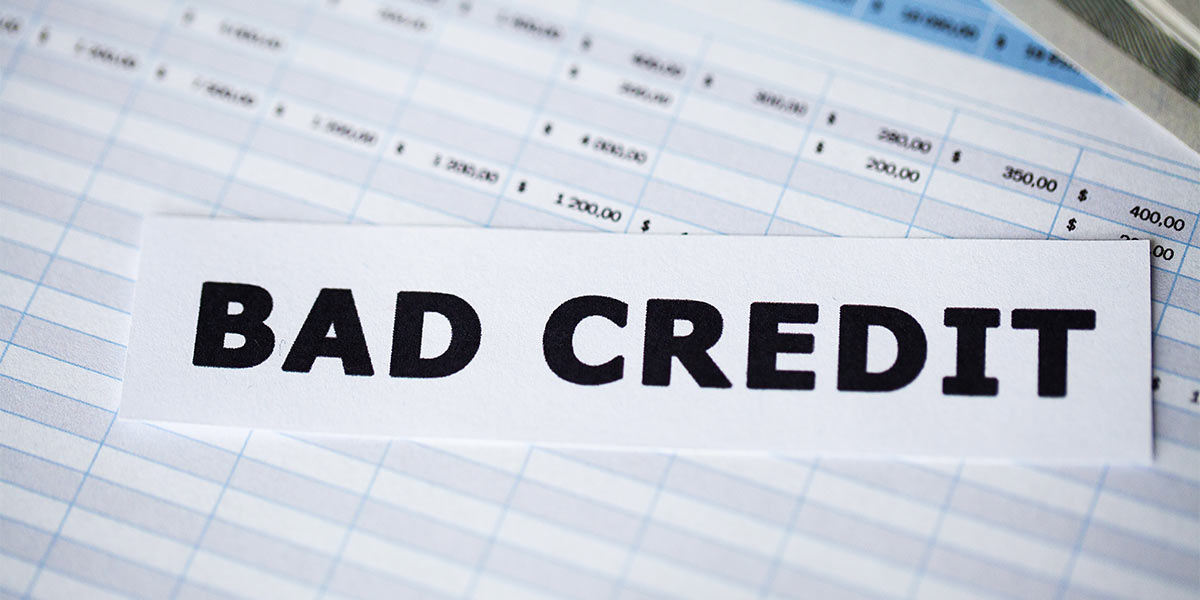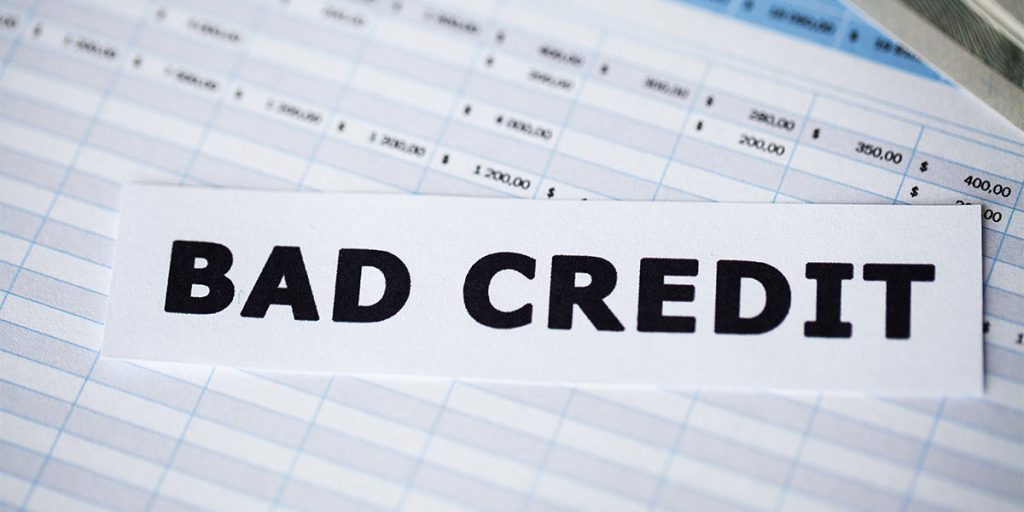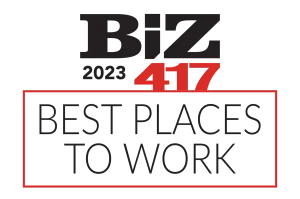
How to Qualify for a Mortgage with Bad Credit

If you have bad credit, you are not alone. Millions of people across the country struggle to maintain a good credit score. Unfortunately, having a bad credit score can make qualifying for a mortgage and buying a property difficult. However, despite having bad credit, there are still ways to get approved for a real estate loan.
Before diving into the article, if you’d like the experts to help you find the best financing options, contact our team at REI News today; we’ll pair you with the best funding options for your budget and credit score.
What is a Bad Credit Score?
Understanding Credit Scores
Before we get started, it’s important to understand what a credit score is and how it is determined. A credit score is a numerical representation of your creditworthiness. In other words, it helps lenders determine how risky it is to lend you money or provide credit based on your credit history. Credit bureaus, such as Equifax, Experian, and TransUnion, collect information from various sources, such as creditors, banks, and lenders, to create a credit report, which is then used to calculate your credit score.
The most widely used credit score model is the FICO (Fair Isaac Corporation) score, which ranges from 300 to 850. The higher the score, the better your creditworthiness. The factors that determine your FICO score include:
- Payment history (35%): Your payment history includes information on whether you’ve made on-time payments, how late payments were, and whether you’ve ever missed a payment.
- Amounts owed (30%): This factor considers how much debt you have compared to your available credit, also known as your credit utilization ratio.
- Length of credit history (15%): This factor considers how long you’ve had credit accounts and how frequently you use them.
- Credit mix (10%): This factor looks at the different types of credit you have, such as credit cards, auto loans, and mortgages.
- New credit (10%): This factor considers how frequently you’ve applied for and opened new credit accounts.
By understanding these factors, you can take steps to improve your credit score and increase your chances of being approved for credit or loans with favorable terms and interest rates. A credit score is a three-digit number that indicates how likely you are to repay your debts. Credit scores range from 300 to 850, with higher scores being better. The better your credit score, the better chance you have of securing funding for your real estate investments.
What is Considered a Bad Credit Score?
A bad credit score is typically considered to be anything below 620. However, this number can vary depending on the lender and the type of loan you are applying for. It’s important to note that even if you have a bad credit score, you may still be able to qualify for a mortgage.
How to Improve Your Credit Score
If your credit score is below 620, there are several things you can do to improve it.
- Check your credit report: The first step to improving your credit score is to check your credit report for errors or inaccuracies. Report any discrepancies to the credit bureau and have them corrected.
- Pay your bills on time: Payment history is an important factor in determining your credit score. Make sure you pay all your bills on time, even if it is just the minimum payment.
- Reduce your credit utilization: Credit utilization is the percentage of your credit limit you are currently using. If you are using more than 30% of your credit limit, it can negatively impact your credit score. Try to pay off your debts or reduce your spending to lower your credit utilization.
- Keep old credit accounts open: The length of your credit history is also considered when calculating your credit score. Keep old credit accounts open, even if you are not using them.
- Apply for credit sparingly: Applying for credit too often can negatively affect your credit score. Only apply for credit when you need it and avoid applying for multiple credit cards or loans at the same time.
- Work with a credit counselor: If you are struggling to manage your debts and improve your credit score, consider working with a credit counselor. They can provide advice and support to help you get back on track financially.
Can You Get a Mortgage with Bad Credit?
Short answer, yes it is possible. However, it will take more effort and require accepting a less financially attractive deal to secure one.
Mortgage Options with Bad Credit
Although having bad credit can make it more challenging to get approved for a mortgage, there are still options available. Some lenders specialize in working with borrowers who have bad credit. These lenders may offer higher interest rates and require a larger down payment, but they can also be more flexible in their approval criteria. Speak to our team at REI News now and we’d be happy to help you discover the best lender to work with based on your current financial constraints.
How to Get Approved for a Mortgage with Bad Credit
If you have bad credit and are looking to buy a home or property, there are several steps you can take to improve your chances of getting approved for a mortgage loan:
- Improve your credit score: Before applying for a mortgage loan, try to improve your credit score by paying off any debts and making payments on time. You can also get a secured credit card to start building credit.
- Save for a larger down payment: A larger down payment can lessen the risk for lenders and improve your chances of getting approved. Save as much as you can toward a down payment before applying for a mortgage loan.
- Get a cosigner: Having someone with good credit and a steady income to cosign your mortgage loan could increase your chances of approval. However, keep in mind that your cosigner will be responsible for the loan if you default on it.
- Look for government-backed loans: FHA loans or VA loans may be easier to qualify for with bad credit as they typically have lower credit score requirements.
- Shop around for lenders: Not all lenders have the same credit requirements, so it may be worth shopping around for a lender that specializes in working with borrowers with bad credit. Speak to us today, and we’ll do the work for you and find you the most affordable and reliable lenders in the industry for your exact requirements.
- Show steady income: Lenders want to see that you have a steady income and can afford to make monthly mortgage payments. Provide proof of steady employment and income to improve your chances of approval.
With patience and diligence, it is possible to improve your credit and increase your chances of getting approved for a mortgage loan.
The Impact of Bad Credit on Your Mortgage Rate
If you do qualify for a mortgage with bad credit, you can expect to pay a higher interest rate than borrowers with good credit. This is because lenders see borrowers with bad credit as being a higher risk. However, if you can improve your credit score over time, you may be able to refinance your loan and get a better interest rate later on.
Mortgage Insurance and Bad Credit
If you have bad credit, you may be required to pay for mortgage insurance. This insurance protects the lender in case you default on your loan. This adds an additional payment on top of your interest payments. However, if you can improve your credit score over time, you may be able to refinance your loan and get rid of the mortgage insurance.
The Impact of Credit History on Mortgage Approval
In addition to your credit score, lenders will also look at your credit history when determining whether to approve you for a mortgage. This includes factors such as your payment history, credit utilization, and length of credit history.
How to Buy Real Estate Property with Bad Credit?
Exploring Loan Options
There are several types of loans available for borrowers with bad credit even if you don’t qualify for a traditional loan. You can look out for private money loans or an FHA loan, which is backed by the Federal Housing Administration. Another option is a VA loan for veterans. These loan types have less strict credit score requirements than traditional loans.
-
FHA Loans vs Conventional Loans
When comparing loan options, it’s important to consider the pros and cons of each. FHA loans typically have lower credit score requirements and allow for a smaller down payment. However, they also require mortgage insurance and have stricter property standards. Conventional loans generally have higher credit score requirements but may not require mortgage insurance if you have a large down payment.
Here’s a breakdown of the pros and cons between an FHA loan and a conventional loan:
FHA Loan:
Pros:
- Lower down payment requirement (3.5% minimum)
- More lenient credit score requirements (580 minimum) –
- Allows for higher debt-to-income ratios (up to 50%) –
- May offer lower interest rates for borrowers with lower credit scores
Cons:
- Requires mortgage insurance premium (MIP)
- MIP can increase monthly payments and add to total loan cost
- Limits on loan amounts based on location
- Some properties may not be eligible for FHA financing
Conventional Loan:
Pros:
- No mortgage insurance requirement if the down payment is 20% or more
- Higher loan limits (up to $548,250 in most areas)
- More flexible property eligibility requirements
- More options for loan types and terms
Cons:
- Higher down payment requirement (typically 5% to 20%)
- Stricter credit score requirements (typically 620 or higher)
- More stringent debt-to-income ratio requirements (typically 43% or lower)
- Possibly higher interest rates for borrowers with lower credit scores
Ultimately, the choice between an FHA and conventional loan will depend on your individual financial situation and goals. It’s important to compare offers from multiple lenders and carefully consider the requirements and costs of each loan type before making a decision.
-
Hard Money or Private Money Loans
Hard Money Lenders
Hard money lenders are typically private companies that offer short-term loans secured by a “hard asset” such as real estate. They are often more willing to work with investors with bad credit because the property collateralizes their loans. However, hard money loans can come with high-interest rates and fees, so carefully weigh the costs and benefits.
Private Money Lenders
Private money lenders are individuals or companies that offer loans to real estate investors, including friends and family of the investor. These loans can be typically secured by the property and can be a good option for investors with bad credit. However, the terms of private money loans can be broad and flexible depending on the source. However, like hard money loans, private money loans can come with high-interest rates and fees.
What Is The Difference Between Hard Money Lenders & Private Money Lenders?
They share many similarities, so most people mistake them for being the same. The main difference that sets private money lenders apart from hard money lenders is that in many instances, if the source is a family member, friend, or colleague, they may not require any form of security for the loan. Private money lenders may still request a form of collateral either through the property mortgage or another form of commensurate value. The level of regulation is also much less or non-existent for these types of loans.
Hard money lenders ensure some form of collateral for the loan, usually the property to be purchased or renovated with the loan. There may be more regulation attached to these types of loans.
The available funding is also usually lower with private money lenders, while hard money lenders can access a larger funding budget.
-
Portfolio Loans
Some lenders offer portfolio loans, which are loans that they hold in their own portfolio rather than selling them to investors on the secondary market. Because these loans are not subject to the same strict underwriting requirements as traditional mortgages, they can be a good option for investors with bad credit.
-
Seller Financing
In some cases, the seller of a property may be willing to finance the purchase themselves rather than requiring the buyer to obtain a traditional mortgage. This can be a good option for investors with bad credit, but it can be difficult to find sellers who are willing to offer this type of financing.
-
VA Loan for Veterans
If you are a veteran, you may be eligible for a VA loan. These loans are backed by the Department of Veterans Affairs and offer lower interest rates and more lenient credit score requirements. However, they are only available to veterans and their spouses.
What are the Best Mortgage Lenders for Bad Credit?
Top Mortgage Lenders for Bad Credit
If you have bad credit and are looking for a mortgage lender, there are several options to consider. Some of the top mortgage lenders for borrowers with bad credit include LoanBidz, Quicken Loans, New American Funding, and Carrington Mortgage Services.
How to Navigate the Mortgage Application Process with Bad Credit
Applying for a mortgage with bad credit can be a daunting process, but it doesn’t have to be. Start by gathering all the necessary documents, such as your tax returns and pay stubs. Be prepared to answer questions about your credit history and explain any negative marks on your credit report. Finally, work with a lender who specializes in working with borrowers who have bad credit.
What Credit Score Do You Need to Buy a Property?
Credit Score Requirements for Different Loan Programs
The minimum credit score required to buy a property varies depending on the loan program you are applying for. For example, the minimum credit score for a house on an FHA loan is typically 580, while the minimum for a conventional loan is 620. If you are applying for a USDA loan, the minimum credit score requirement is usually around 640.
For traditional commercial mortgages, most lenders will require a credit score of 680 or higher. However, some lenders may require a higher credit score, such as 700 or more, for certain loan programs or if you have a high debt-to-income ratio.
It’s important to note that your credit score is just one factor that lenders consider when deciding whether to approve your loan application for commercial property. They will also look at other factors such as your income, employment history, the property’s value, and the amount of debt you have.
If you have a lower credit score, it may be more difficult to get approved for a commercial real estate loan, but it’s not impossible. You may need to work on improving your credit score or consider alternative options such as a portfolio loan or a loan from a private or hard money lender.
Summary
In conclusion, while having bad credit can make it more difficult to qualify for a mortgage, it is still possible. By improving your credit score over time and working with a lender who specializes in working with borrowers who have bad credit, you can increase your chances of getting approved for a home loan. Keep in mind that the type of loan you choose, as well as factors such as your income and employment history, can also impact your eligibility for a mortgage.
And if you’d prefer to leave the difficult work to the professionals, get in touch with us now. The REI News team are experts in matching investors with lenders who meet their exact loan requirements.
Let Us Help You Boost Your Real Estate Projects!
Share your real estate investment projects with us and one of our team members will contact you with the right funding solution.





 Previous Post
Previous Post Next Post
Next Post






